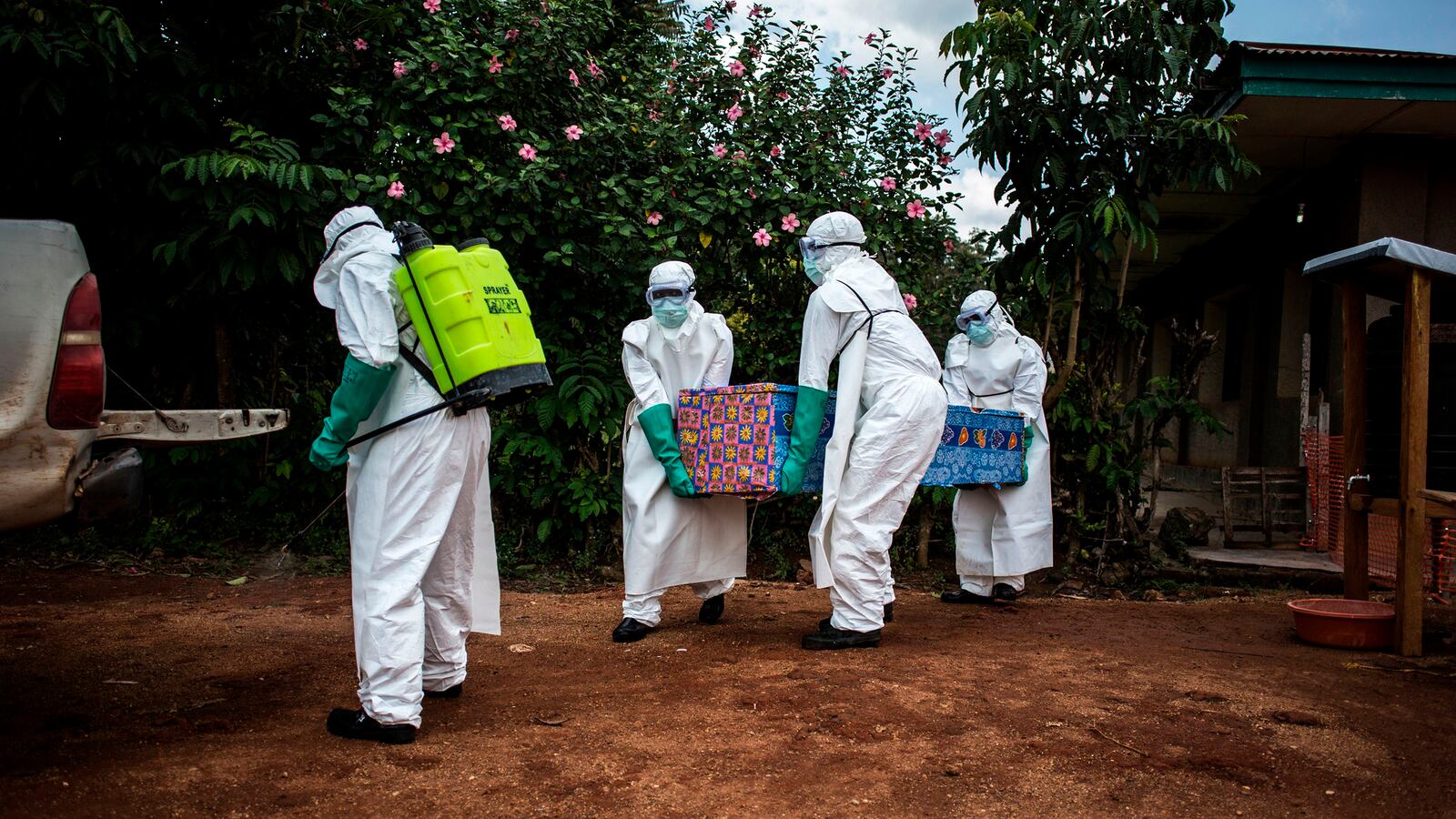More than 100 people in an embattled northeastern province in the Democratic Republic of Congo have died in a widening Ebola outbreak, as volunteers fighting to prevent the deadly disease from spreading have come under attack, officials announced this week.
Three Red Cross volunteers were violently attacked by community members while carrying out the safe burial of Ebola victims in the city of Butembo, the International Federation of Red Cross and Red Crescent Societies said Thursday. Two of the volunteers were seriously wounded, according to a press release.
“Tuesday’s attack has been the most violent incidence of community resistance to date,” said Fatoumata Nafo-Traoré, the organization’s regional director for Africa. “This is an awful reminder of the dangers that these volunteer safe and dignified burials teams face.”
Officials noted that safe burials are critical in preventing the spread of the virus, which can still be transmitted through a body even after death. The Red Cross said it has carried out 162 such burials in the province of North Kivu since the outbreak was officially declared on Aug. 1.
“While we categorically denounce the attack on our colleagues, we understand the fear and frustration that many communities in North Kivu feel right now,” said Nafo-Traoré. “People are scared and there are many rumours circulating that only serve to heighten the sense of fear and distrust.”
World Health Organization Director-General Tedros Adhanom Ghebreyesus said Wednesday in a video briefing with the United Nations Security Council that the outbreak has reached a “critical point.”
“This epidemic is occurring in the context of much wider humanitarian needs, in a country whose people have suffered enormously over several decades,” Ghebreyesus said, noting that this is Congo’s 10th Ebola outbreak.
WHO has more than 200 staff members on the ground, which are currently operating out of four different hubs, he added.
WHO and MONUSCO (the United Nations Organization Stabilization Mission in the Democratic Republic of the Congo) have so far tallied 161 confirmed and probable cases of Ebola, counted 106 deaths, and noted 45 survivors.
Another 13,700 people have been vaccinated, and 47 people have been treated with investigational therapeutics, said Ghebreyesus.
But the director-general described the widening outbreak as an “extremely difficult situation” in which cases have been found in areas bordering Uganda and in “red zones,” or areas that are inaccessible because of occupation by armed troops. Officials raised the risk of regional spread from “high” to “very high” on Saturday after two people infected with the virus traveled from the northeastern city of Beni to Tchomia, near the Ugandan border.
WHO officials have expressed concerns that the virus will not only spread into Uganda, but also into Burundi, South Sudan, and Rwanda. The risk of it spreading outside of Africa, he said, remains low.
In addition to community distrust, some health workers in Congo working to fight the hemorrhagic fever have reportedly said they feel as if they’re effectively operating in a war zone due to ongoing armed conflicts, including several fatal attacks within 10 miles of Beni, one of the WHO hubs.
Human Rights Watch has called for an investigation into the massacres in the DRC, which have killed more than 200 civilians this year in and around the city of Beni, ABC News reports. The attacks have reportedly involved guns, axes, machetes, and other weapons.
“There has been an increase in the frequency and intensity of attacks by armed groups in very close vicinity to Beni,” Ghebreyesus said Wednesday, detailing ambushes, rocket explosions, and other chaos over the past two months. Such attacks put WHO operations in lockdown for several days while the fatal hemorrhagic fever continues to spread, he said.
“We have taken every possible measure to ensure that WHO staff are kept safe, but as we deploy more staff to the field, the risks increase of an accident, or a kidnapping, or one of our colleagues simply being in the wrong place at the wrong time,” Ghebreyesus added.
After the briefing, the Security Council called for an end to hostilities by armed groups in Ebola-stricken northern areas of the country.
“Rest assured that we are working around the clock on the response, and doing everything within our power to bring this epidemic to an end,” Ghebreyesus said on Wednesday.






